
How to clean an electric kettle: your complete guide
An electric kettle can help streamline your mornings, but keeping your electric kettle clean is essential to preserving the unique flavors and aromas of tea and coffee. While you certainly want to keep your countertop kettle looking pristine, natural minerals in your water can also create buildup inside it, affecting the taste of your hot beverage or cereal and the performance of your electric kettle. Keep reading to learn how to clean an electric kettle.
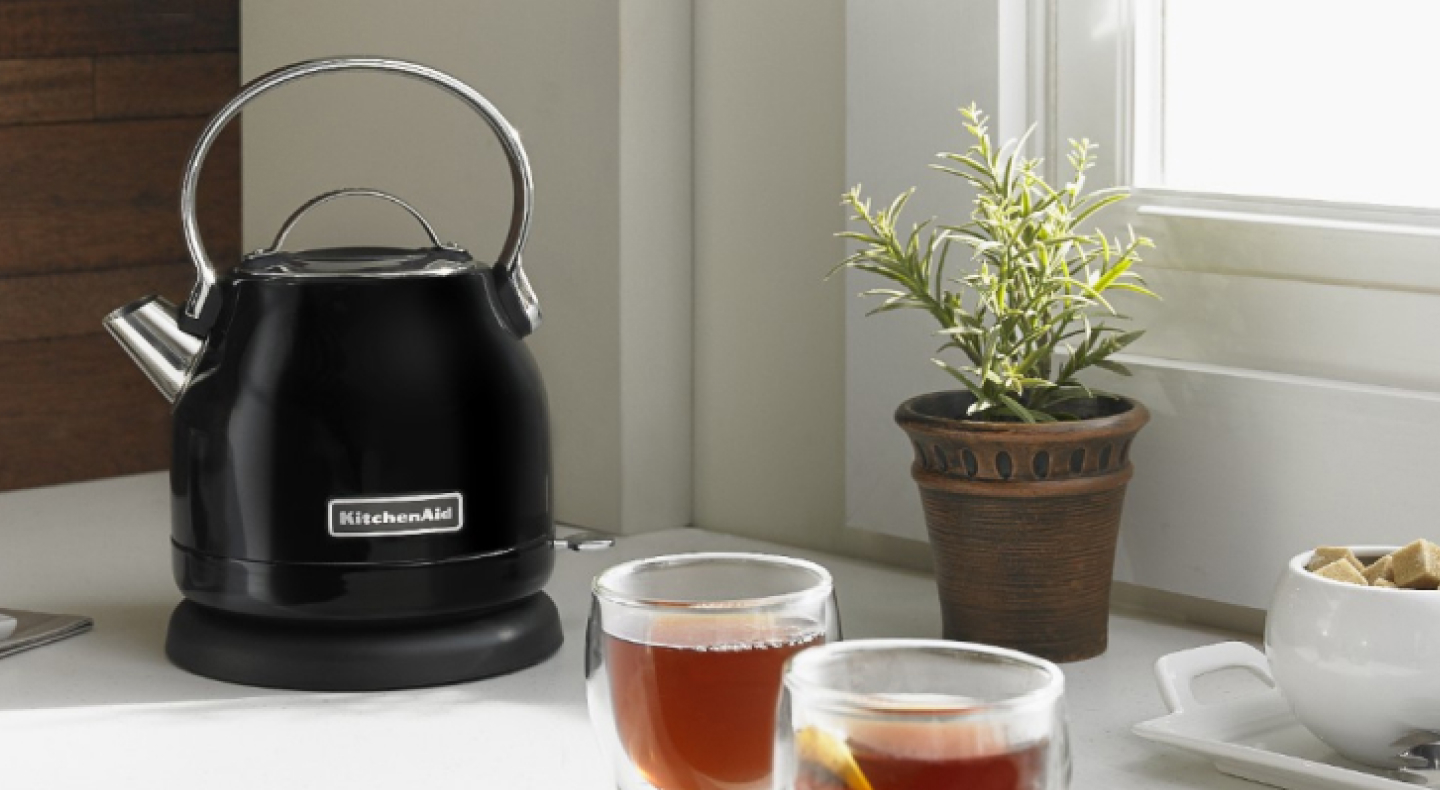
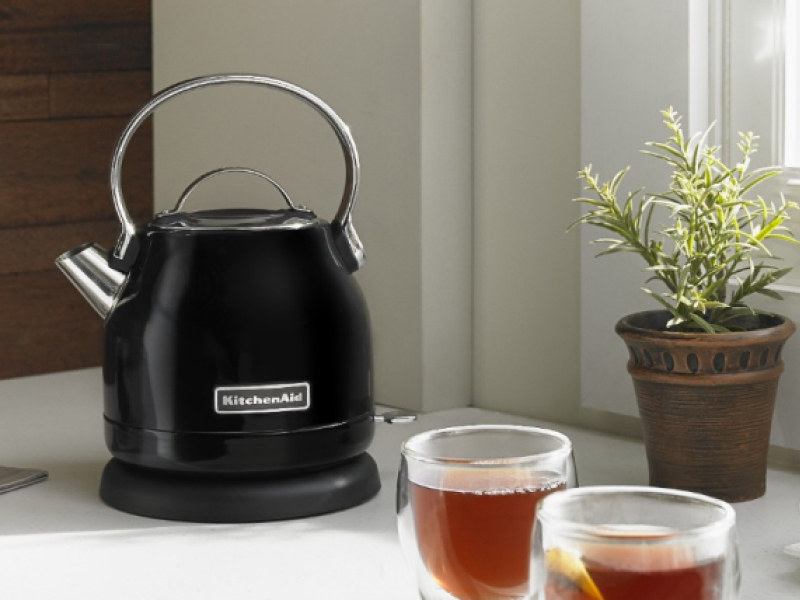
How often should you descale and clean an electric kettle?
To help ensure your morning cup of tea tastes perfect, it’s good to make cleaning your electric kettle a daily habit, as well as descaling it on a regular basis, sometime around once a month if you use your kettle daily.
Descaling is the process of removing limescale buildup inside your kettle, which comes from calcium, magnesium and other minerals found in your water. If you have hard water, you may need to descale your electric kettle more often because hard water has a higher mineral content than soft water.
What is buildup in an electric kettle?
When you heat water in a kettle, the water can leave behind calcium deposits from the natural minerals in your water. How quickly these deposits build up is most likely tied to the hardness of the water in your home. This buildup can affect the taste of your hot beverages.
How to clean an electric kettle with vinegar
Thanks to its mild acidity, vinegar is a good solution for breaking down mineral buildup in your electric tea kettle. It’s the next best thing to using a specialized descaling agent and is an accessible home solution for cleaning and descaling.
What you’ll need to clean your electric kettle
Cleaning your electric kettle is a simple process requiring just a few household items.
Daily cleaning: To keep the kettle exterior clean, use a damp cloth to remove any water splashes and residue, then dry and polish with a soft cloth.
- Interior cleaning and descaling: To clean or descale the interior, all you need is approximately one cup of white vinegar.
To keep your electric kettle performing at its highest level, you’ll want to know how to descale a kettle using vinegar.
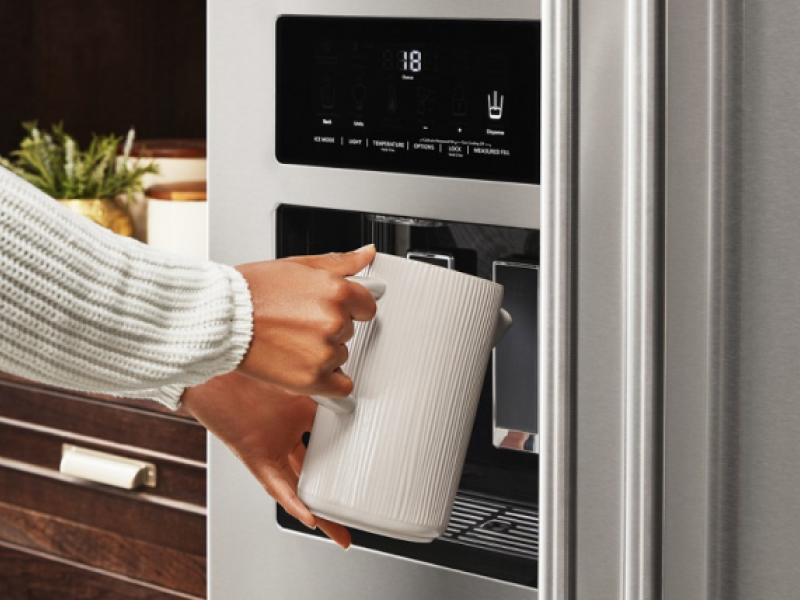
Step 1: Combine water and vinegar
Fill your electric kettle with 1 part white vinegar and 3 parts water.
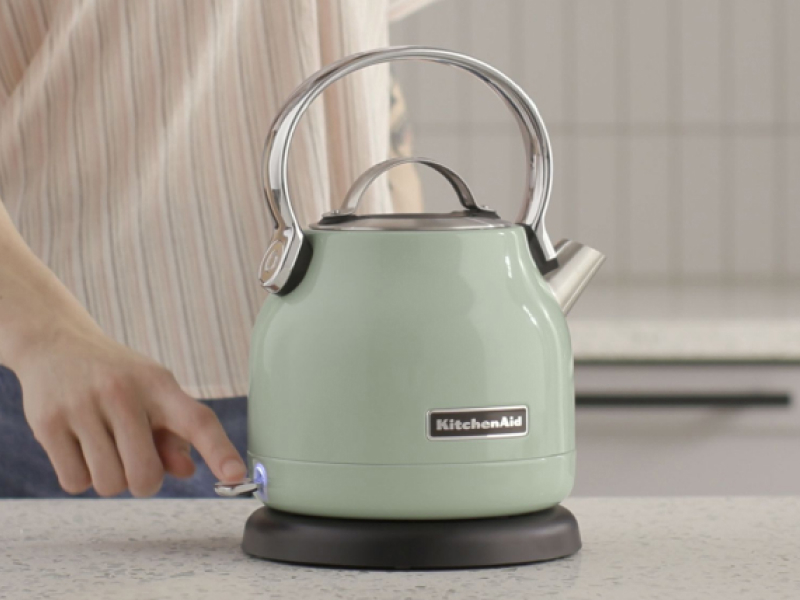
Step 2: Bring mixture to a boil
Bring the vinegar and water mixture to a boil and allow to stand overnight before emptying the solution.
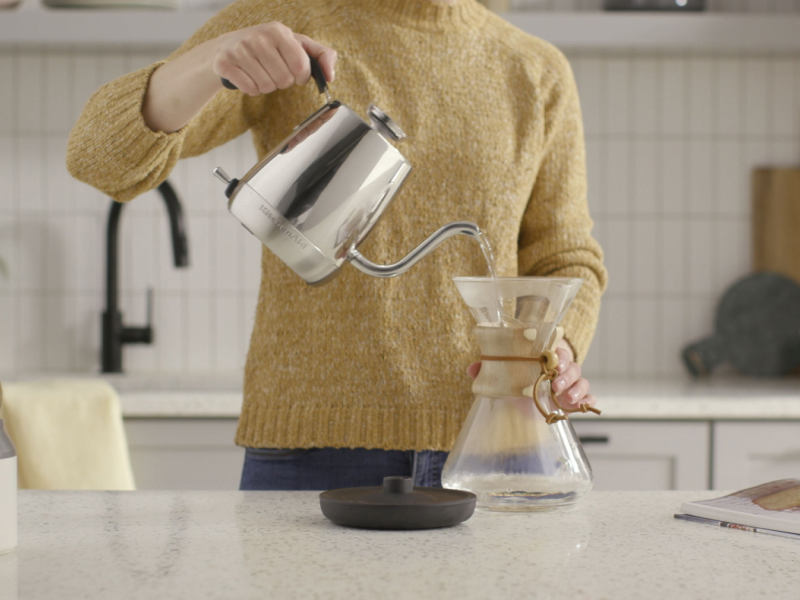
Step 3: Drain kettle
Fill the electric kettle with water, bring to a boil, then drain. Repeat twice to remove any lingering vinegar odor or taste, then your electric kettle is ready for use again.
Does vinegar damage an electric kettle?
Cleaning with diluted white vinegar is usually a safe and effective way to descale your electric kettle. The mild acidity in vinegar can help break down mineral buildup. Although, before you clean your kettle, it’s recommended that you refer to your owner’s manual for care and cleaning tips.
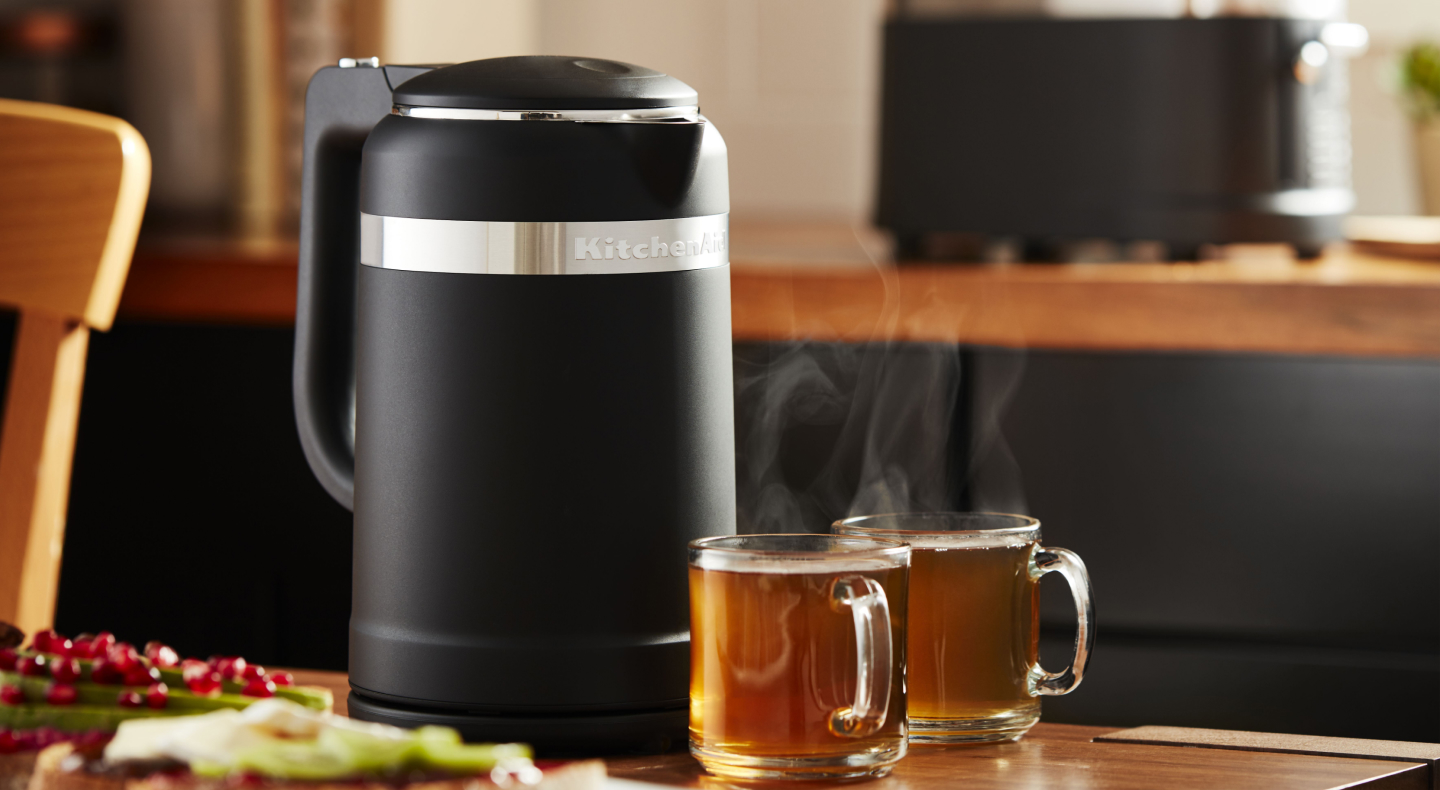
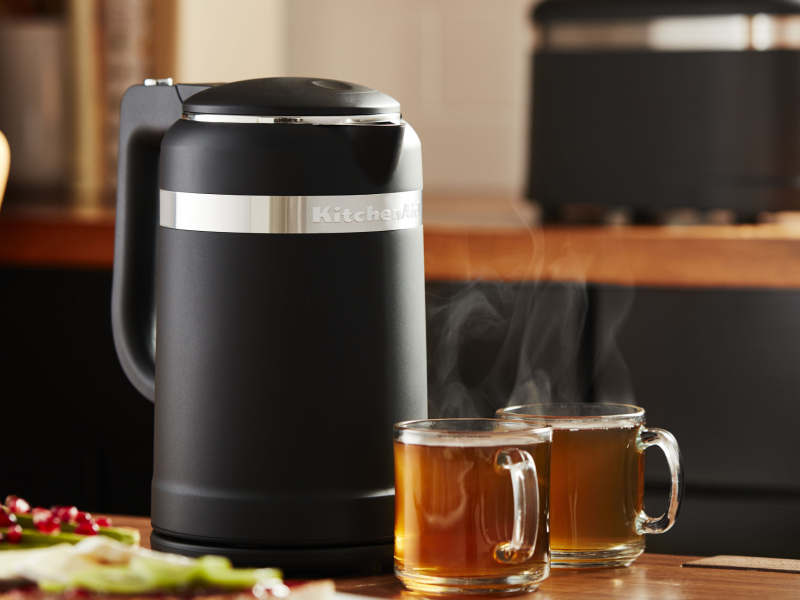
Ways to clean the inside of an electric kettle
You can also clean the interior of your kettle using lemon juice, citric acid, baking soda or flat soda. Simply heat your preferred solution, allow it to sit and then scrub lightly, using a non-abrasive sponge or microfiber cloth before rinsing and drying. Each method varies in time and volume.
Use lemon juice or citric acid
Lemon juice and citric acid make for excellent cleaning agents. The acid helps to act as a natural bleach and antiseptic, plus the smell of lemon will bring an energizing aroma to your kitchen.
Step 1: Add cleaning agent
Pour a tablespoon of citric acid powder or lemon juice into the kettle.
Step 2: Add water
Add enough water to cover the base and turn the kettle on to heat.
Step 3: Discard water
Once the mixture has boiled, discard any remaining water and rinse thoroughly with water before drying.
Use baking soda
You likely already have baking soda in your kitchen, making this an effective and practical cleaning method.
Step 1: Add baking soda
Add 1–2 tablespoons of baking soda to your kettle, then fill with water. Bring to a boil.
Step 2: Let kettle cool
Remove the kettle from the heat and let it sit for 10 minutes.
Step 3: Scrub kettle
Gently scrub the inside of the kettle with a non-abrasive brush. Wait until the kettle is cool to the touch, then rinse with clean water and dry with a dish towel.
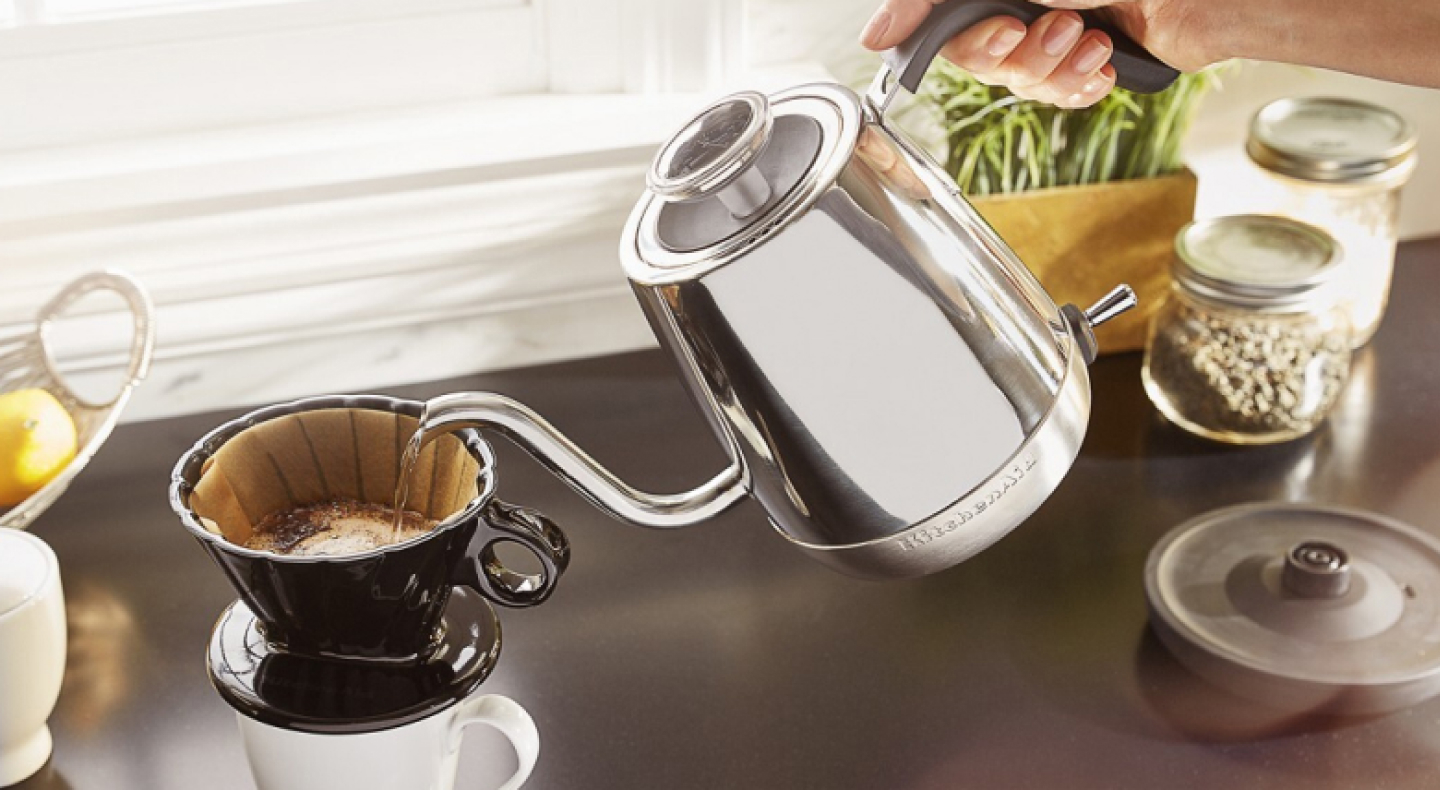
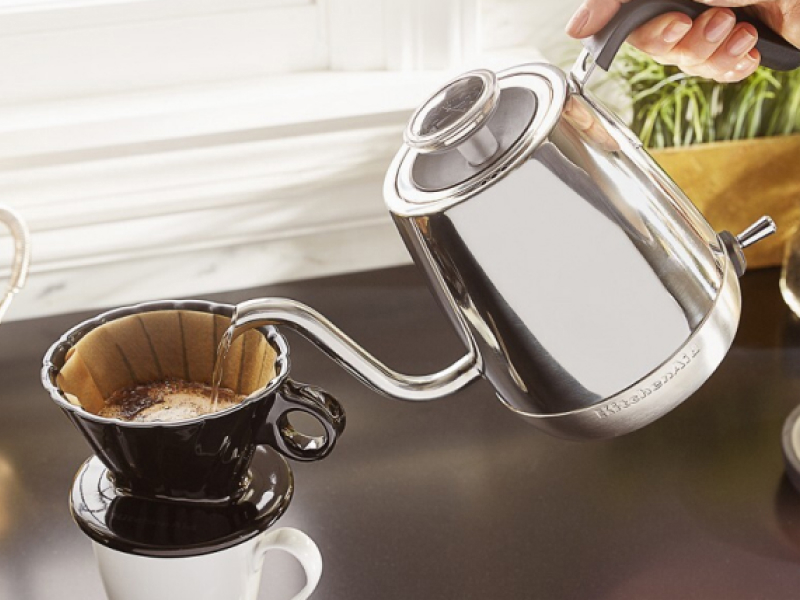
Methods for cleaning a stainless steel kettle
To keep the outside of your kettle clean, wipe with a damp cloth to remove any water splashes and residue, then dry and polish with a soft cloth.
Use dish soap
Use your favorite dish detergent to clean the outside of your kettle. Wash the outside with dish soap and then wipe it down with a damp cloth, being careful to not get soap inside the kettle. When you’re finished, dry the kettle with a dish towel.
Use olive oil
Olive oil is an excellent, natural cleaning solution for polishing stainless steel kettles. Dab about a teaspoon or so of olive oil onto a soft, microfiber cloth. Rub the cloth gently over the exterior of your kettle to create a lustrous shine. Be careful not to use an abrasive sponge or cloth, as it could scratch the finish.
Shop all KitchenAid® electric kettles
Whether you’re steeping a soothing cup of herbal tea or blooming cocoa powder to incorporate into a rich chocolate dessert, an electric kettle offers convenience for a variety of boiling water recipes. Electric kettles are easy to use, stylish and compact on your kitchen countertop. Their removable base allows you to transfer the kettle to wherever you need it while a sleek, stainless steel body fits into nearly any décor. Explore different sizes, features and designs of electric kettles from KitchenAid brand. You can also compare different types of tea kettles to find the right fit for your kitchen.